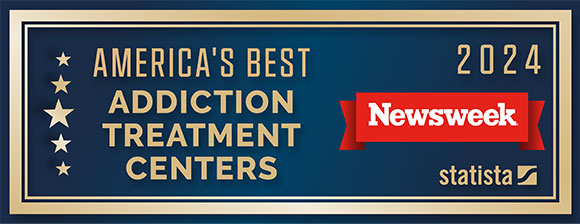Bipolar Disorder is a mental health brain condition that was once called manic depression due to its characteristic symptoms of highs (mania) and lows (depression). While many believe bipolar disorder to be a rare condition, that is far from reality.
According to the Depression and Bipolar Support Alliance (DBSA), approximately 5.7 million adult Americans are affected by bipolar disorder. That’s almost 3% of all people aged 18 or over.
While the average onset for bipolar is age 25, it may be nearly as common among youth. Recent research shows that a similar percentage of adolescents between ages 14 to 18 meet the criteria for the disorder.


We still have much to learn about bipolar disorder. Because of this, it is one of the most frequently misdiagnosed mental health conditions. In fact, many of those suffering from bipolar will experience symptoms for up to ten years before receiving an accurate diagnosis.
The DBSA reports that only one in four adult males will receive an accurate diagnosis within the first three years of having any symptoms.
Bipolar disorder is marked by severe shifts in mood ranging from inappropriate euphoria to severe depression. This mental instability often results in relationship issues, financial crisis, suicidal tendencies, and a significantly higher likelihood of addiction.
However, it is unclear whether bipolar disorder causes addiction, or if addiction triggers bipolar. There is reason to believe that these conditions are very intertwined.
Named Best Luxury Malibu Rehab by Newsweek

Many who suffer from bipolar will turn to various substances to self-medicate. In turn, these substances may trigger manic or depressive episodes. Because of this, bipolar disorder and addiction are commonly comorbid and require dual diagnosis treatment for recovery to be successful.
There are several forms of bipolar, each with their own defining criteria. The most commonly diagnosed forms are Bipolar I and Bipolar II.
Both conditions are marked by episodes of mania and depression, but those diagnosed with Bipolar I have experienced at least one severe manic episode that lasted seven days or longer. It is not uncommon for the extreme manic episodes associated with bipolar I to require hospitalization.
Contact Us For Info on Bipolar Disorder and Addiction Treatment
Symptoms of Bipolar Disorder
Diagnosing the symptoms of bipolar disorder can be difficult because the condition is so complex and presents itself in different forms and varying degrees.
A proper assessment by a mental health professional is necessary before beginning treatment and it’s important to evaluate if there is any relationship to the symptoms and addiction, or the use of prescribed or self-medicated substances.
Bipolar Mania Symptoms
Bipolar mania symptoms are usually easier to diagnose than depression symptoms and can include many of the following:
- Decreased need for sleep
- Feeling jumpy or wired
- Racing thoughts
- Increased risky behavior
- Impulsivity
- Inappropriate euphoria
- Irritability
- Grandiose ideas
Bipolar Depression Symptoms
Bipolar depression symptoms are more difficult to diagnose than mania symptoms because they often mimic the same depression symptoms that are not related to bipolar. Bipolar depression symptoms usually include, but are not limited to:
- Increased need for sleep
- Feelings of hopelessness
- Loss of interest
- Difficulty concentrating or indecision
- Changes in appetite
- Suicidal thoughts
- Lack of energy
- Feelings of guilt
The bipolar disorder infographic below entitled, “Life With Bipolar,” outlines some of the changes in thoughts and behaviors that accompany mania and depression, as well as the types of bipolar, and distinguishing what it is not.

Bipolar Disorder Infographic by Mental Health America.
Dual Diagnosis Treatment for Bipolar Disorder and Addiction
When treating a client struggling with both bipolar disorder and addiction, it is important to treat each issue simultaneously for recovery to be successful.
Treating one issue and not the other will prove to be an ineffective solution in the long-term as they can be closely connected, with one often acting as a catalyst for the other.
At Oro House Recovery Centers, we understand that the greatest hope of recovery for many of our clients is through Dual Diagnosis Treatment.
While it is often necessary to prescribe medication for bipolar disorder, psychiatric counseling is just as important. Most studies confirm that medication combined with cognitive therapy offers the most successful means of recovery for those living with bipolar disorder and addiction.
In addition to receiving the required medical care for recovery, Oro House uses evidence-based treatment therapies for our clients, including but not limited to:
- Cognitive Behavioral Therapy
- Rational Emotional Behavioral Therapy (REBT)
- Neurofeedback
We also integrate holistic methods that teach our clients how to self-regulate their emotions after completing treatment.
By introducing healthy practices such as meditation, nature immersion, and yoga, our clients are given the lifestyle tools they need for a successful recovery long after they leave our care.